SUMMARY
This is AI generated summarization, which may have errors. For context, always refer to the full article.
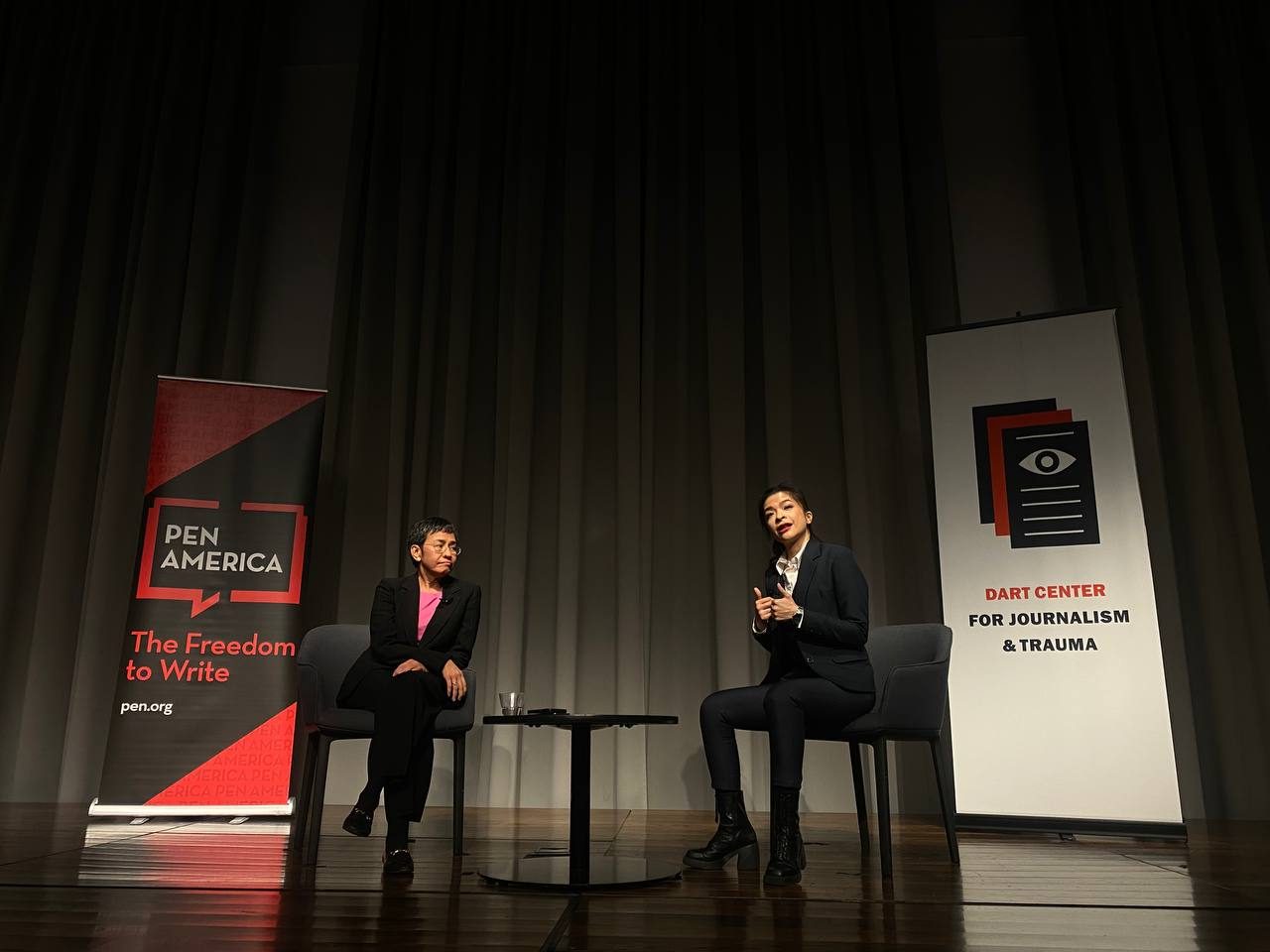
MANILA, Philippines – Patricia Evangelista, who covered Rodrigo Duterte’s bloody drug war for Rappler, launched on Wednesday morning, October 18 (Manila time), her debut book: a non-fiction narrative of her investigation into the extrajudicial killings in the Philippines during Duterte’s six-year presidency.
Some People Need Killing: A memoir of murder in my country was launched in New York at the Dart Center for Journalism and Trauma based in Columbia University, and hit the bookstores in the Philippines on the same day. (Watch the launch that was co-organized by PEN America here. You may order the book here.)
Evangelista is in the US for security reasons, as “we don’t know the risk of my having released this book,” she told the New Yorker Magazine.
In the book, Evangelista retells the stories of the award-winning investigations she has published on Rappler in richer detail, color, and context. She not only examines Duterte, his language, and the method by which the culture of impunity was sustained, but also herself – as a journalist, as a Filipino, and as a citizen who needs to take accountability for the blood that’s spilled on the streets.
“My inability to hold myself to account was not only due to a misguided sense of objectiveness, it was a failure of nerve. So, the book I wrote is a book about the dead, and the people they left behind. It is also a personal story written in my own voice as a citizen of a nation I do not recognize as my own,” Evangelista said at the launch.
“Whether or not we voted for Duterte, it was under our watch. When it comes to who is responsible for the drug war, it was not only Rodrigo Duterte, it was the presidential spokespersons, it was morticians who raked in the money, clerks who were making people crouch on the streets making suspects piss for a drug test, it was the SPO1 [Senior Police Officer 1] cops, the patrolmen, everyone else, the people who are a little bit accountable to it. The way I look at the war, the way I look at this book – it is a story of what happens when dictators rise and we let them,” she added.
‘Grammar of violence’
Evangelista wrote this book with precision.
She went through all of Duterte’s public speeches and counted all the times that the former president said the word “kill,” and noted that he never said “murder” because Duterte is, after all, a prosecutor who knows his way around the law. At the same time, Evangelista revisited crime scenes, spot reports, affidavits, victims’ memories, and her own records, to show a huge gap between the kind of justice delivered in court and the kind that would forever escape an orphaned child.
Evangelista had asked not only lawyers and journalists to fact-check her book but also a poet – Palanca-award winner Mikael de Lara Co – to confirm that she understood and translated Duterte’s words accurately – “when he says putang ina did he mean motherfucker, son of a bitch or for fuck’s sake?”
The book is a “journalistic masterpiece,” wrote New Yorker editor David Remnick, and it’s listed by The New York Times as among the books to look forward to this year.
But Evangelista is her own toughest critic – as she reflects on the speech that won her the world championship in public speaking and launched her career when she was just 18, or how she felt when the family of a mother and son killed by an off-duty cop refused to blame Duterte for the culture of impunity.
“The stories might have had my name on the byline but they belong to other people in other places, families whose grief and pain were so massive that mine was irrelevant,” writes Evangelista.
Evangelista dives into the “grammar of violence,” employing literary device in scrutinizing the man whose drug war is under investigation by the International Criminal Court as an alleged crime against humanity.
The book’s title, Some People Need Killing, is straight out of the mouth of a vigilante killer that Evangelista interviewed for a story that linked the Manila police to outsourced murders.
“The function of how Rodrigo Duterte runs is that it’s a story, it’s a narrative, it’s the fact that he’s willing to say ‘I will destroy you all.’…The reason it’s important is you have to remember, when you hear him speak, even if he says half of the things I say is not true, these are the words of a head of state, the commander of the armed forces, the 16th president of a republic,” Evangelista said at the launch.
‘I don’t believe journalism will save the world’
Rappler CEO and 2021 Nobel Peace Prize winner Maria Ressa, who interviewed Evangelista at the launch, called the book “the best narrative literary journalism book to come out of our country.”
Evangelista’s investigations formed the backbone of Rappler’s coverage of the brutal drug war. These stories, along with those that unmasked corruption and information operations under Duterte, caught his ire, leading to what used to be 12 cases against Ressa and Rappler.
“I knew that that was my job – her (Evangelista’s) job was to go and get their stories. My job was to keep the sky from falling on us, so we could keep doing the job we do, and it was inspiring to see our journalists come together, and it isn’t just Rappler,” said Ressa.
Evangelista, who has worked with Ressa from their days in ABS-CBN, said: “Inasmuch as my relationship with Rappler was fraught because I kept pushing back when I did not want to submit a story or other things, the value of working for a house like that was that they absorbed the shock so we could do our jobs on the field,” said Evangelista.
The “fraught” working relationship that Evangelista referred to came out in the playful banter with Ressa about Evangelista missing deadlines, both as a reporter and a book author.
“Why did it take so long? The people deserve that. Whether or not it is good writing, they deserve more thought than the thought it took to pull a trigger. I wanted to do justice to the stories, I don’t know if I did, but I wanted to try,” said Evangelista.
The Philippines is 7th in the world in terms of most number of unsolved journalist killings, according to the 2021 Global Impunity Index of the Committee to Protect Journalists. Among Evangelista’s most remarkable coverages was the massacre of 58 people, 32 of them journalists, in 2009 in Maguindanao.
“When I say I don’t believe journalism will save the world, mostly it’s a function of self-preservation. If I believe my stories will save people, I’d quit tomorrow….The way to keep doing a job is to negotiate your expectations, my expectation is to keep a record, a good one I hope, a compelling one I hope. I hope to honor the people who trusted me with their stories, who took risks which are far beyond the risks I ever took,” said Evangelista.
“As much as I do not believe that grand things will happen if you tell a story, I also believe you have to tell the story just because you can and you should. I want to say “no,” because your refusal matters if only to your own record. That is our duty as citizens, we keep our record as well as we can until one day it matters, maybe there’s a full phalanx of people who will say ‘no’ as well,” she added. – Rappler.com
Add a comment
How does this make you feel?
![[Newsstand] Patricia Evangelista and writing the war](https://www.rappler.com/tachyon/2023/10/some-people-need-killing-book.jpg?fit=449%2C449)


![[The Slingshot] Lito Patay’s 4 hours and 38 minutes of infamy](https://www.rappler.com/tachyon/2024/07/Lito-Patay-4-hours-infamy-July-19-2024.jpg?resize=257%2C257&crop=233px%2C0px%2C720px%2C720px)

![[The Slingshot] A Duterte and Bato cop named Patay](https://www.rappler.com/tachyon/2024/06/tl-lito-patay.jpg?resize=257%2C257&crop=322px%2C0px%2C720px%2C720px)

![[OPINION] Where are the community libraries 30 years after we passed the law?](https://www.rappler.com/tachyon/2024/06/tl-barangay-public-libraries.jpg?resize=257%2C257&crop=195px%2C0px%2C720px%2C720px)

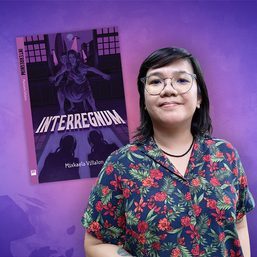
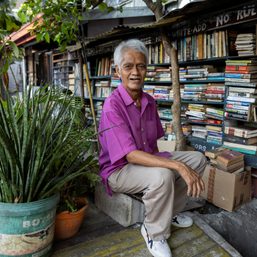


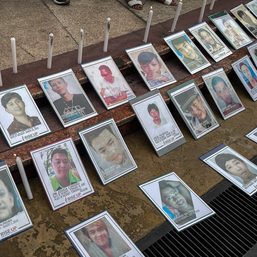
![[EDITORIAL] Sorry Arnie Teves, walang golf sa kulungan](https://www.rappler.com/tachyon/2024/03/animated-arnie-teves-arrest-carousel.jpg?resize=257%2C257&crop=310px%2C0px%2C720px%2C720px)







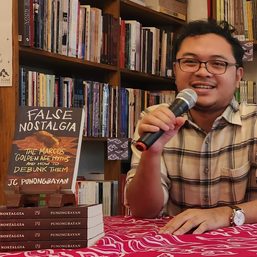

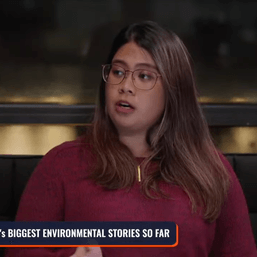
![[OPINION] Rodrigo Duterte and his ‘unconditional love’ for China](https://www.rappler.com/tachyon/2024/04/rodrigo-duterte-xi-jinping-august-2019.jpeg?resize=257%2C257&crop=91px%2C0px%2C900px%2C900px)


There are no comments yet. Add your comment to start the conversation.